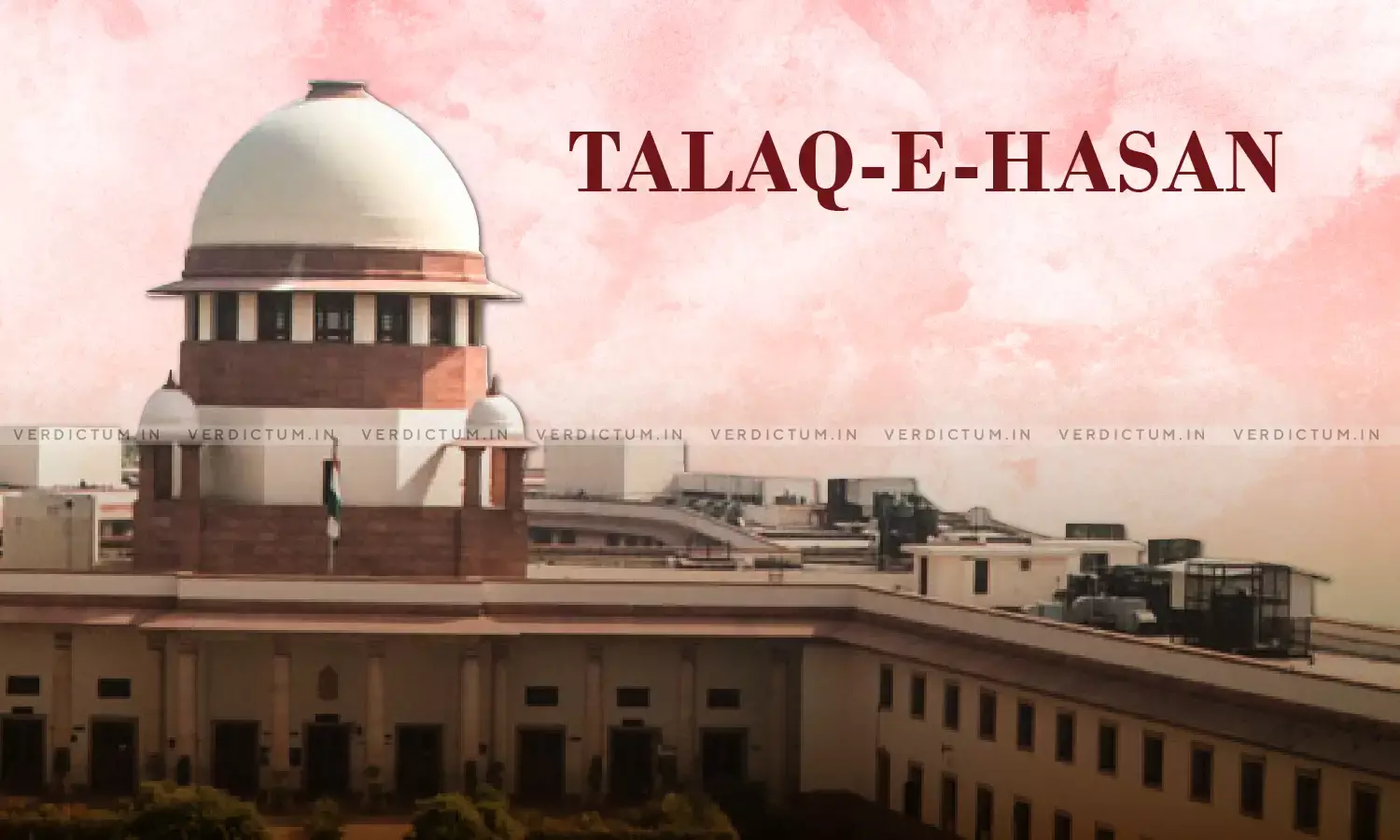Talaq Given By Text Message- Mumbai Resident Approaches Supreme Court Challenging Talaq-e-Hasan

A new writ petition has been filed as a Public Interest Litigation under Article 32 in the Supreme Court challenging Talaq-e-Hasan, seeking a declaration that all forms of unilateral extrajudicial Talaq including Talaq-e-Hasan as void and unconstitutional.
Nazreen Nisha, a Mumbai resident has moved the Supreme Court through Advocate Ashutosh Dubey. She has also prayed for a direction to the Centre to frame guidelines for gender-neutral, religion-neutral uniform grounds of divorce and uniform procedure of divorce for all.
The petitioner has stated that she was married as per Muslim rites and her parents were being compelled to give dowry and she was being tortured for the same. The petitioner was made to suffer on account of inadequate dowry and soon the torture by the family of the husband turned into frequent physical assaults.
The petitioner has submitted that she fell ill and was diagnosed with Tuberculosis after which her husband left her with her parents and refused to take her back and assaulted her character by calling her characterless and a prostitute, without any reason. The Husband of the petitioner gave her Talaq-e-Hasan through text message saying that she is unfit for him and that he doesn't need her in any case.
As per the petition, she had filed a complaint with the authorities but the authorities showed no interest stating that unilateral extra judicial Talaq-e-Hasan is permitted under the Sharia Law. As per the Petitioner, all the unilateral extra-judicial forms of Talaq are arbitrary irrational and contrary to Articles 14, 15, 21, 25 and international conventions on civil rights and human rights.
The petitioner had also sought a declaration that Section 2 of the Muslim Personal Law Application Act and Dissolution of Muslim Marriages Act is void and unconstitutional.
This is the second petition before the Supreme Court challenging the Talaq-e-Hasan. Earlier, a journalist from Ghaziabad, Benazeer Heena, had approached the Supreme Court seeking similar reliefs.
During the pendency of her petition, she had received the third and final notice of Talaq under Talaq-e-Hasan. Despite numerous mentionings, her petition is yet to be listed before the Court.
In Talaq-e-Hasan, talaq is pronounced once a month, over a period of three months. If cohabitation is not resumed during this period, divorce gets formalized after the third utterance in the third month. However, if cohabitation resumes after the first or second utterance of talaq, the parties are assumed to have reconciled.

